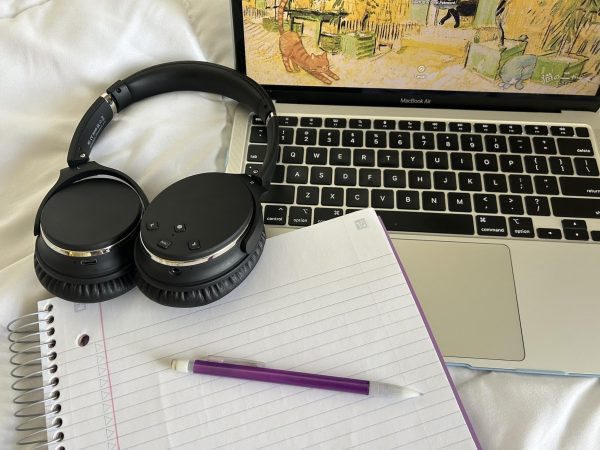No money? No worries!
September 21, 2005
Unusual ways to pay for college
Credit: Steve Schirra
In an age of rising tuition rates and declining financial aid options, paying for college may seem more and more daunting every year.
Believe it or not, there are some strange ways you could pay for college this semester.
For example, you can sign up to be an organ donor and encourage others to do the same. And you’ll get $500 for your trouble.
Or say you’ve always been “the tall kid in class.” Well, your increased height may finally pay off. To the tune of $1,000.
At www.finaid.org, students can find all kinds of ways to do something unique and get paid for it.
The Students for Organ Donation Youth Leadership Award is available to both full-time high school and undergraduate students and ranges between $500 and $1,000. In order to be eligible, applicants must have actively increased awareness in their community about organ donation and transplantation.
Tall Clubs International offers students the Kae Sumner Einfeldt scholarship, where women more than 5 feet 10 inches tall and men more than 6 feet 2 inches tall can get up to $1,000. However, candidates must be under 21 and plan to attend college in the fall.
Adversely, the Little People of America association offers a scholarship to its members to help pay for college. Membership is open to people who are 4 foot 10 inches or less.
Full details on these scholarships and more can be found at http://www.finaid.org/scholarships/unusual.phtml.
Mark Kantrowitz, publisher of finaid.org, has run the site since 1994. When he was in college, Kanotrowitz managed to fund all of his tuition without spending any of his parents’ money.
“The unusual scholarships page is a big draw for many students who visit our site,” Kantrowitz said.
“But we also have a ‘scholarships for average students’ page.”
Kantrowitz recommended that when people are looking for scholarships they search the databases available on the Internet, particularly Fastweb.com, the largest and most popular free scholarship search currently on the Internet.
But, Kantrowitz cautioned, you have to be careful when looking for scholarships.
“Anybody (who) asks you for money to do a financial aid or scholarship search is probably running a scam, so beware,” Kantrowitz said.
There are other strange scholarships available on the Internet. Such as the Kor Memorial scholarship.
Awarded to recognize and encourage scholarship in the language study field, applicants can get up to $500. And, as the Web site says, “Familiarity with Klingon or other constructed languages is not required, however creative and innovative applicants are preferred.” Interested students can visit http://www.kli.org/scholarship for more information.
While many turn to scholarships to provide that extra financial oomph to tuition, there are those who meet their financial obligations in more arduous ways.
Like senior English major Robyn Matako.
When Matako was 18, she moved in with her grandfather in what would become a mutually beneficial relationship: Matako needed somewhere to stay, and her grandfather needed a caretaker and companion.
“He has diabetes and has had knee replacements, as well as open-heart surgery,” Matako said of her grandfather.
“Because of this, I have to make sure his diet is what he needs, so I cook as well as taking care of his other medical needs.”
Matako, who works as a toy associate at her local Wal-Mart in addition to taking a full load of classes, described a state of constant tiredness and the struggle to balance school, work and caring for her grandfather.
But she refuses to complain as she feels luckier than many of her fellow students.
“I’m more grateful to my grandfather than anything,” Matako said. “If it wasn’t for him, I wouldn’t be able to do half the things I need to do to get through college.
“On top of rent and everything else, he also helps me pay for books. I’m very thankful to be in the situation I’m in.”
Contact features reporter Shelley Blundell at [email protected].























